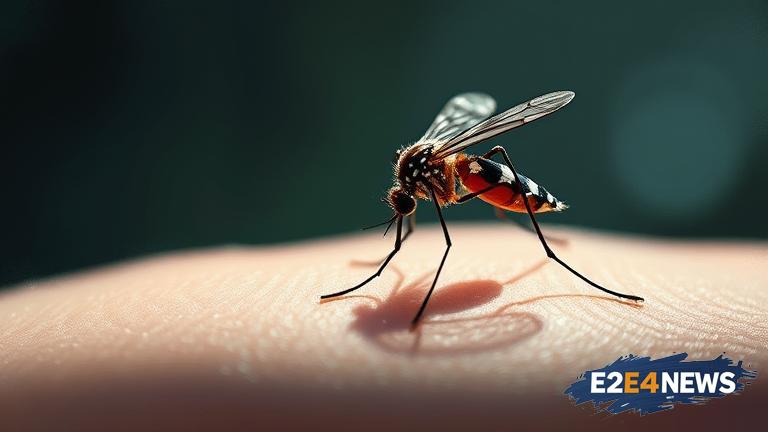Mosquitoes have long been a nuisance to humans, and their bites can transmit diseases such as malaria, dengue fever, and Zika virus. But have you ever wondered why some people seem to be more attractive to mosquitoes than others? According to recent studies, the answer may lie in your blood type. It appears that mosquitoes are more drawn to individuals with Type O blood, followed by those with Type A and Type B blood. People with Type AB blood, on the other hand, seem to be the least attractive to mosquitoes. But why is this the case? One theory is that mosquitoes can detect the different chemicals present in each blood type, and are more attracted to the unique combination of chemicals found in Type O blood. Another theory suggests that the bacteria present on the skin of individuals with Type O blood may be more appealing to mosquitoes. Whatever the reason, it’s clear that blood type plays a role in mosquito attraction. But it’s not the only factor at play. Other factors, such as body temperature, carbon dioxide emissions, and even the type of clothing you wear, can also influence a mosquito’s decision to bite. For example, mosquitoes are more attracted to dark colors and warm temperatures, which is why they often target people who are wearing dark clothing or are engaging in physical activity. Additionally, mosquitoes can detect the carbon dioxide emitted by humans, which is why they are often found near areas where people are congregating. But what can you do to avoid being a mosquito magnet? For starters, wearing light-colored clothing and avoiding areas with high mosquito activity can help reduce your chances of being bitten. You can also try using insect repellents, such as DEET or picaridin, which can help deter mosquitoes. Furthermore, eliminating standing water around your home and using mosquito nets can also help reduce the mosquito population. It’s also worth noting that some people may be more susceptible to mosquito bites due to genetic factors, such as a higher concentration of certain chemicals in their skin. However, more research is needed to fully understand the link between genetics and mosquito attraction. In the meantime, being aware of the factors that influence mosquito attraction can help you take steps to protect yourself. By understanding the role of blood type and other factors in mosquito attraction, you can take a proactive approach to avoiding bites and reducing your risk of contracting mosquito-borne illnesses. Moreover, researchers are working to develop new methods for controlling mosquito populations, such as genetically modified mosquitoes that are unable to transmit diseases. These advancements could potentially lead to a significant reduction in mosquito-borne illnesses in the future. In conclusion, the link between blood type and mosquito attraction is a complex one, and more research is needed to fully understand the underlying mechanisms. However, by being aware of the factors that influence mosquito attraction, you can take steps to protect yourself and reduce your risk of being bitten. Whether you have Type O, Type A, Type B, or Type AB blood, there are steps you can take to avoid being a mosquito magnet. So next time you’re outdoors, remember to wear light-colored clothing, apply insect repellent, and avoid areas with high mosquito activity. Your blood type may play a role in why mosquitoes love you, but it’s not the only factor at play. By taking a proactive approach to avoiding bites, you can reduce your risk of contracting mosquito-borne illnesses and stay healthy all year round.
